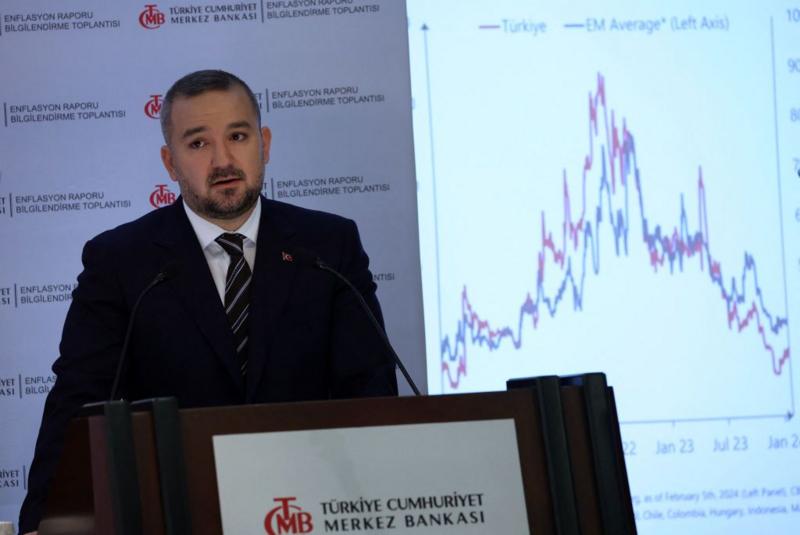The Central Bank kept the policy rate unchanged this time, which was 45 percent in line with expectations. However, with the changes made in the policy text, hawkish signals were given that more tightening steps would be taken if necessary.
Is a Central Bank that says it will be hawkish when necessary but refrains from taking hawkish steps today hawkish?
If the Central Bank’s reason for not raising interest rates today is its sincere belief that there is no need to do so, then the answer is “Yes”. If the Central Bank believes that it can remove the bottlenecks in monetary policy within a reasonable timeframe and make the broken links work again, and if it believes that its year-end inflation forecast of 36 percent is achievable when it does so, then it is reasonable that it does not go for additional tightening today.
But if the Central Bank considers the probability of achieving the 36 percent target “no matter what it does” to be weak and, despite this, does not raise interest rates but aims to lower expectations as much as possible through verbal guidance, then the answer to the above question is “No”.
A similar question concerns the measures mentioned in the text of the decision, which are said to be put into effect if necessary against possible bottlenecks in loan and deposit rates. Is the Central Bank saving possible additional steps for later because it is satisfied with the functioning of the monetary transmission mechanism regarding loan and deposit rates at the moment, or is it waiting for “after the elections” as many analysts have noted as quite natural?
The answer to this question is also not clear in my mind. Especially when we consider our experience with Central Bank independence, which peaked in the last 4-5 years, I do not know how clean and long-lasting the page the new team has opened is in terms of independence.
It is an oxymoron for an independent Central Bank to act according to the election calendar. In other words, if a central bank is “independent”, this independence requires it to act independently of the government’s election calendar.
‘Optimistic inflation forecast’
Our calculations indicate that the annual inflation forecast of 36 percent is optimistic and that the year-end inflation will be close to 50 percent.
I do not know what is in the minds of the Central Bank management, but in light of the hawkish steps it has taken so far, I would like to give them the “benefit of the doubt”, which has no exact equivalent in Turkish, by whispering in the ear of Cevdet Akçay, one of the deputy governors. The Central Bank knows how much space politicians give them, the economic data that we cannot see and all the details about the functioning of the monetary transmission mechanism. That’s why I think the Central Bank can be given some time to do what it promised.
But how long will this deadline be? Last week’s inflation report provides clear guidance on this issue. Fatih Karahan, the Governor of the Central Bank, took a very important step in the name of accountability and said that the data that should be followed to determine whether the 36 percent target will be achievable is the seasonally adjusted monthly inflation figure. He pointed out that if this figure exceeds 3 percent on average in the February-June period, the year-end inflation forecast will be jeopardized.
The decision text on Thursday concretized this rhetoric and stated that the monetary policy stance will be tightened “in case of a significant and permanent deterioration in the inflation outlook”. In other words, if the monthly average inflation in the first half of the year exceeds 3 percent, the Central Bank will raise interest rates.
This is where the principle of “accountability” comes into play, which goes hand in hand with the principle of “transparency”. If the monthly inflation figure we will follow exceeds 3 percent (and household inflation expectations of about 80 percent make this probability high), the markets will “hold the Central Bank to account” and if the Central Bank fails to act, there will be a significant loss of credibility.
I believe that a Central Bank, which has made its communication so clear, has taken steps considering this possibility and will not hesitate to act in that case. However, I think that the possibility that the next tightening will be late should not be underestimated at that point.
Translated from BBC Turkish
